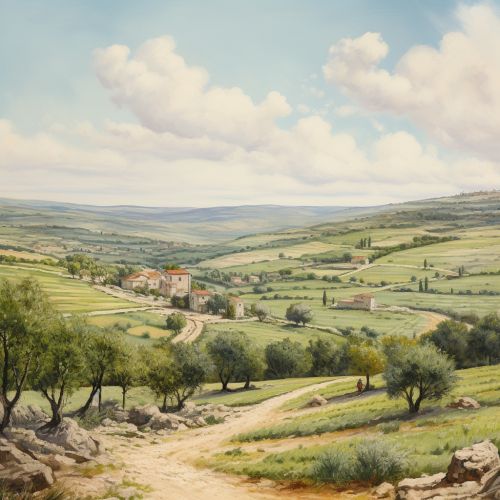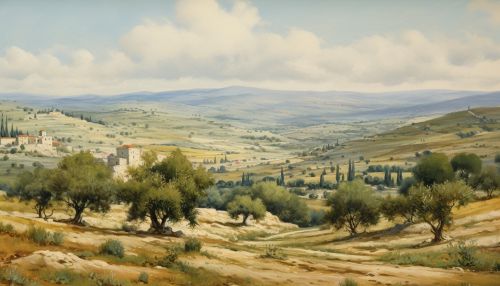West Bank
Geography
The West Bank is a landlocked territory in the Middle East, bordered by Jordan to the east and Israel to the south, west, and north. The territory is named for its location on the western bank of the Jordan River. The terrain is mostly rugged and mountainous, with the Jordan Valley forming a small northern part of the Great Rift Valley. The climate is Mediterranean, characterized by long, hot, dry summers and short, cool, rainy winters. The highest point in the West Bank is Mount Ebal, at 3,084 feet (940 meters).


History
The history of the West Bank is intertwined with the broader history of the Palestine region, and includes periods of rule by various empires and peoples, from the Canaanites, Israelites, and Romans, to the Byzantines, Arabs, Crusaders, and Ottomans. In the 20th century, the West Bank was part of the British Mandate of Palestine, and after the 1948 Arab-Israeli War, it was annexed by Jordan. Following the 1967 Six-Day War, Israel occupied the West Bank and has controlled it ever since, despite international condemnation and ongoing Palestinian resistance.
Demographics
The West Bank is home to approximately 2.8 million Palestinians, according to estimates by the Palestinian Central Bureau of Statistics. The population is predominantly Arab and Muslim, with smaller communities of Christians and Samaritans. The official language is Arabic, though Hebrew and English are also widely spoken. The West Bank also hosts a significant number of Israeli settlers, whose presence is considered illegal under international law but is defended by the Israeli government.
Politics and Governance
The political status of the West Bank is one of the most contentious issues in the Israeli-Palestinian conflict. The territory is claimed by the State of Palestine, which is recognized by many countries and international organizations, but not by Israel or the United States. The Palestinian Authority exercises limited self-rule in certain areas, while Israel maintains full control over others, including all borders and airspace. The Israeli occupation has been widely criticized for its impact on Palestinian human rights and economic development.
Economy
The economy of the West Bank is heavily dependent on Israel, with many Palestinians working in Israel or in Israeli settlements. Key sectors include agriculture, manufacturing, construction, and services. The West Bank is also a major producer of olives and other fruits, and has significant stone and marble quarries. However, economic growth is constrained by Israeli restrictions on movement and access, as well as by corruption and mismanagement within the Palestinian Authority.
Culture
The culture of the West Bank is rich and diverse, reflecting its long history and mix of influences. Traditional music, dance, and cuisine play a central role in social life. The territory is also known for its handicrafts, including olive wood carvings, Hebron glass, and Palestinian embroidery. Education and literacy rates are high, and there is a vibrant arts scene, with numerous theaters, galleries, and film festivals.
